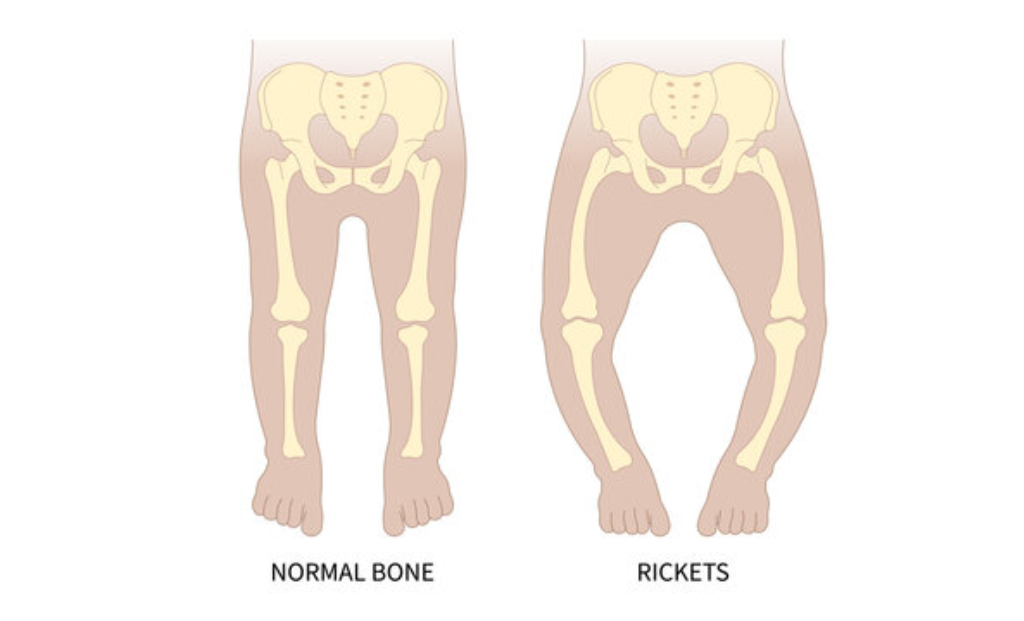- Home
- Rickets
Rickets
Rickets
Rickets is a childhood bone disorder characterized by soft, weak bones that are prone to deformities and fractures. It primarily occurs due to a deficiency in vitamin D, calcium, or phosphate, essential nutrients for bone health and development. Vitamin D deficiency is the most common cause of rickets, as this vitamin plays a crucial role in helping the body absorb calcium and phosphorus from the diet.

The symptoms of rickets can vary depending on its severity but often include skeletal deformities such as bowed legs, knock knees, or an abnormally shaped skull. Children with rickets may also experience delayed growth, muscle weakness, dental problems, and an increased susceptibility to fractures.
Several factors can contribute to the development of rickets, including inadequate sunlight exposure (which is necessary for the body to produce vitamin D), a diet low in vitamin D, calcium, or phosphate-rich foods, certain medical conditions that affect nutrient absorption or metabolism, and genetic factors.
Diagnosis of rickets typically involves a physical examination, assessment of symptoms, blood tests to measure levels of vitamin D, calcium, and phosphate, and imaging studies such as X-rays to evaluate bone density and structure.
Treatment for rickets focuses on addressing the underlying nutrient deficiency and promoting bone health. This may include vitamin D supplementation, dietary changes to increase intake of calcium and phosphate-rich foods (such as dairy products, leafy green vegetables, and fish), and exposure to sunlight. In severe cases, when the bones are significantly weakened or deformed, additional treatments such as braces or surgery may be necessary to correct skeletal abnormalities and prevent further complications.
With early diagnosis and appropriate treatment, the prognosis for children with rickets is generally good, and bone health can be restored. However, without intervention, rickets can lead to long-term complications and impairments in growth and development. Therefore, it is important for parents and caregivers to be aware of the risk factors for rickets and seek medical attention if they suspect their child may be affected.
